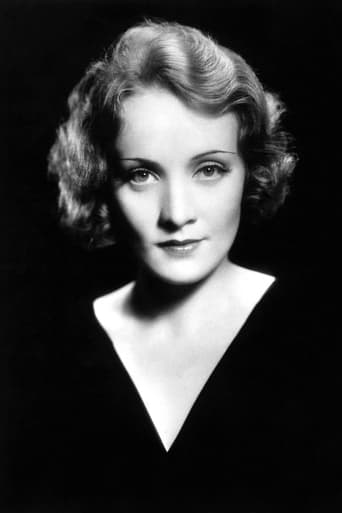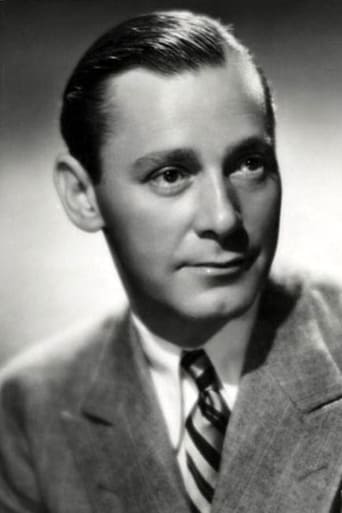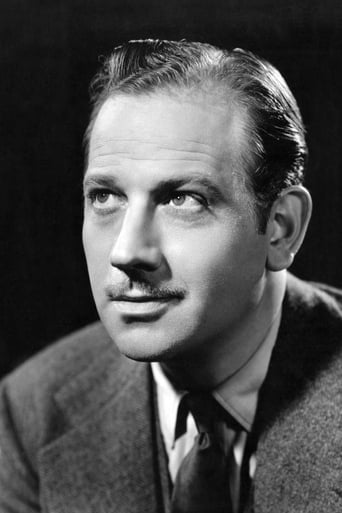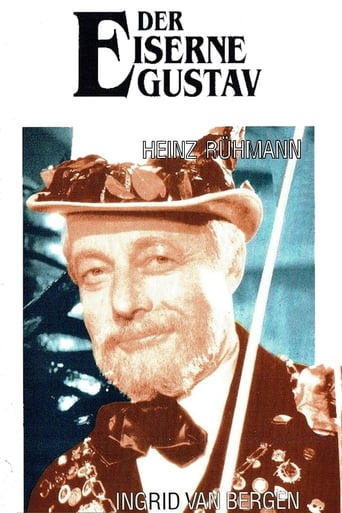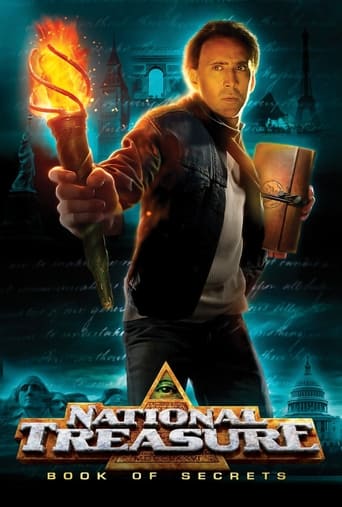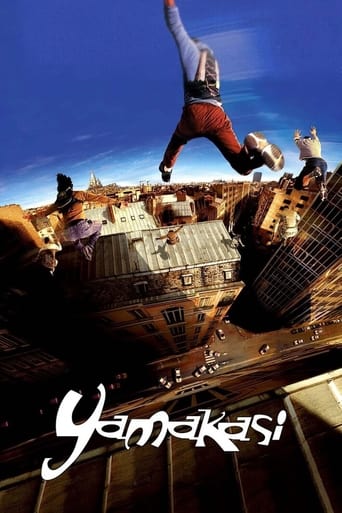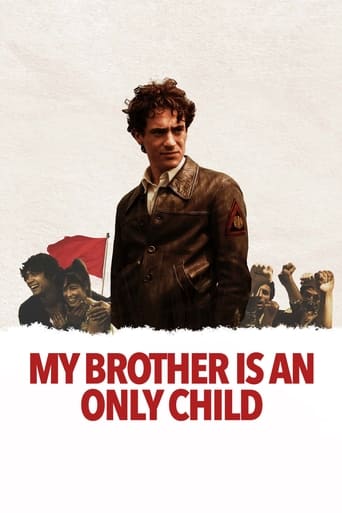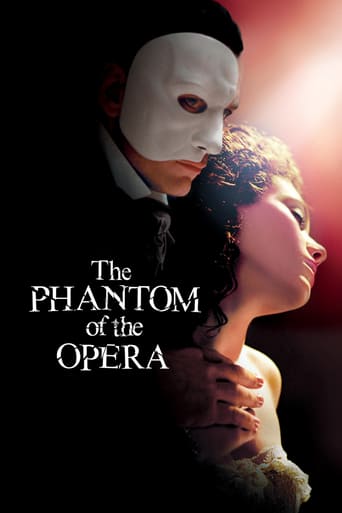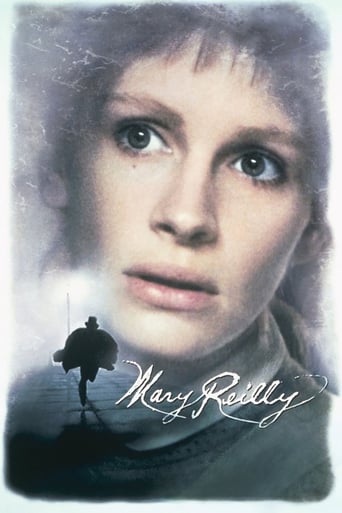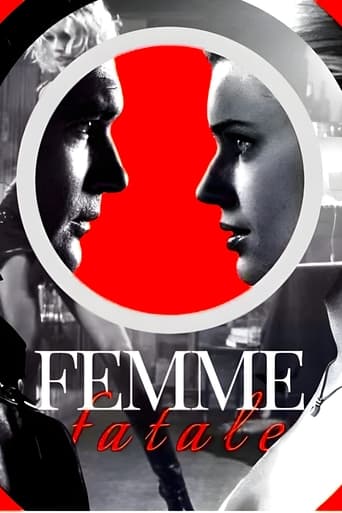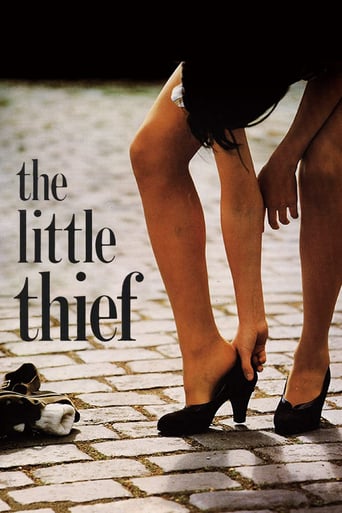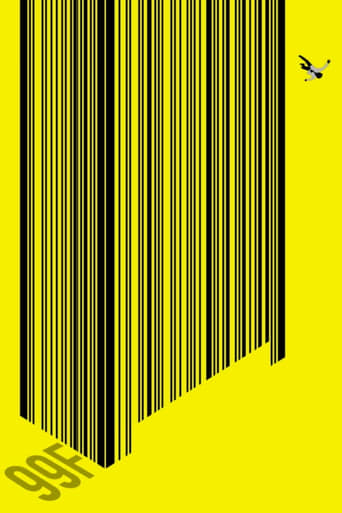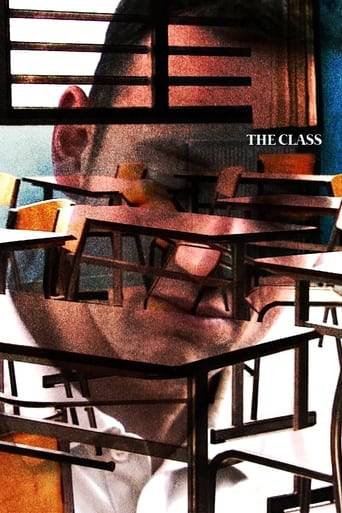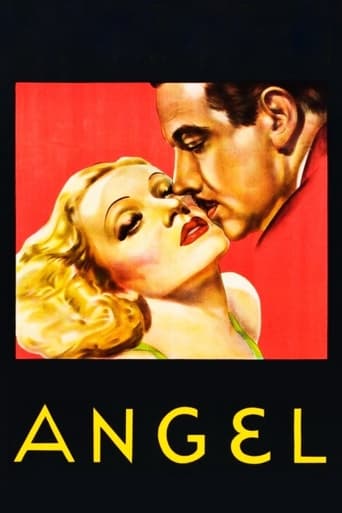
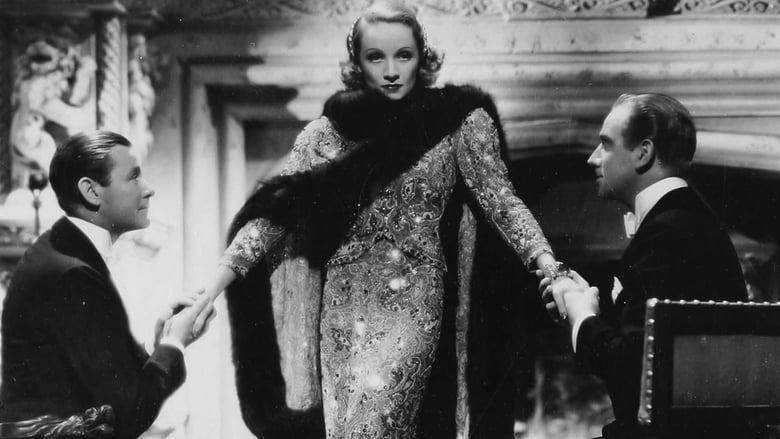
Angel (1937)
A woman and her husband take separate vacations, and she falls in love with another man.
Watch Trailer
Cast


Similar titles
Reviews
"Angel" from 1937 is a Dietrich-Lubitsch collaboration that didn't come off - in fact, this was the last film Dietrich made for Paramount, after which she was labeled box-office poison. You can see why this film didn't help, though she is photographed like a dream and dressed divinely by Travis Banton.Based on a play, this is a rather dull story. The neglected, bored wife, Maria (Dietrich) of a very busy diplomat (Herbert Marshall) flies to Paris and goes to a salon run by a countess (Laura Hope Crews) who is an old friend of hers. It's apparently a high-class brothel. While waiting to see her, she meets Tony Halton (Melvyn Douglas), looking for a delightful evening. She agrees to meet him for dinner. The affair isn't shown, but one assumes they consummated their relationship. She disappears without telling him her name or her knowing his.Later on, he runs into an old friend, who is Maria's husband. Maria and Tony meet again - under awkward circumstances.This isn't a comedy, and it really isn't much of a drama either, with dull spots enlivened by the supporting cast - Crews, Edward Everett Horton, and Ernest Cossart, who plays the butler. (He tells his fiancée over the phone, "If you don't tell me where you learned to rumba, we're through.")Directed with the usual Lubitsch subtlety, this is just okay, lacking the bubbly champagne touch that made Lubitsch's work in films like "The Shop Around the Corner," "Ninotchka," "To Be or Not to Be" and so many other great films of his.
Imagine a movie set in Paris directed by Ernst Lubitsch, the masterful director of such Parisian sexual innuendo comedies as Ninotchka, The Love Parade, The Merry Widow (1934 version), One Hour with You, and Design for Living. Imagine as the male lead Melvyn Douglas, who was so great in Ninotchka. Imagine as the female lead one of the great European stars of the cinema, a magnificent beauty like Garbo or Dietrich. Imagine that it concerns a Russian countess living in exile in Paris.But don't imagine that it's another Ninotchka. Far from it. It's Angel, in which all those ingredients that two years later would go to make one of the great Hollywood comedies, with Garbo and Douglas directed by Lubitsch, instead made for one very dull semi-comedy.Where to put the blame? The script, certainly, which isn't funny and never seems to know where it's going. Are we supposed to sympathize with Dietrich's character because she's abandoned by her husband, or condemn her for considering infidelity? The men at Paramount who approved it, and who should have spotted a bomb in the making. It is seldom funny. We seldom care about the characters. (Why did Paramount keep starring Herbert Marshall in pictures? He is just not interesting.) One or two scenes are mildly clever, which was probably Lubitch's doing. The rest verges on stale melodrama. The end isn't convincing.Taken all together, I'd say forget it. This is one Angel that never takes flight.
Looking at the criticisms so far voiced about Angel, the majority seems to feel it's a neglected Lubitsch masterpiece. Yet this was the film that caused Paramount and Marlene Dietrich to come to a parting of the ways. Marlene would not be back on the screen until she signed a new contract with Universal and made a comeback of sorts in something that would have been unthinkable for her in 1937. That film was a western, but the western was Destry Rides Again.Ernest Lubitsch and Marlene Dietrich hit a double dry spell in Angel. The sum and substance of it is that up and coming young British diplomat Melvyn Douglas meets a mysterious and alluring woman at Laura Hope Crews's palace in Paris who he falls hopelessly for. But the alluring as ever Marlene is merely the very bored wife of a senior diplomat who is a member of the nobility, Herbert Marshall. It also turns out that Douglas and Marshall are old army buddies.Somehow Lubitsch could not work his usual magic with Marlene. Her scenes with the two men seem to have no spark to them. In fact the ending is a bit of a shock, personally I think she made the wrong choice.Where Lubitsch did well in Angel was with the supporting players. Laura Hope Crews is quite a bit different as the worldly countess than as that pillar of southern society Aunt Pittypat Hamilton from Gone With The Wind. Some of the back and forth commentary between Marshall's butler Ernest Cossart and his valet Edward Everett Horton are also quite droll. What snobs those servants can be, much worse than the people who employ them.Sad to say Angel is a film with a lot of gloss, but no real substance behind it.
Lubitsch is recognized as one of the great directors of the 30s, and yet this wonderful film is not on any of the usual critical lists of notable films. Perhaps it was too modern for its time. It is perhaps Dietrich's best English performance (though even here she could be a bit more subtle), but the real star is the director, shining in the shots he composes and performances he coaxes from his actors. Lubitsch is a master of subtlety, and when he places important moments off-screen, it is in such a way as to heighten their impact. Since the censorship code is in effect, the sexual elements are cleverly concealed. For example, Halton and Barker discover that in Paris they both visited the same... seamstress. The naive Hays Office must have thought that was the joke, but the real joke is on them for it is clear--at least today--that the two did not visit her to get their sewing done. The sophistication of the film is unusual for its time.Pages could be written about this film. Suffice it to say that if you like 30s film at all, see this. In certain moments, it feels perfect. Probably one of the top 25 of the decade.


